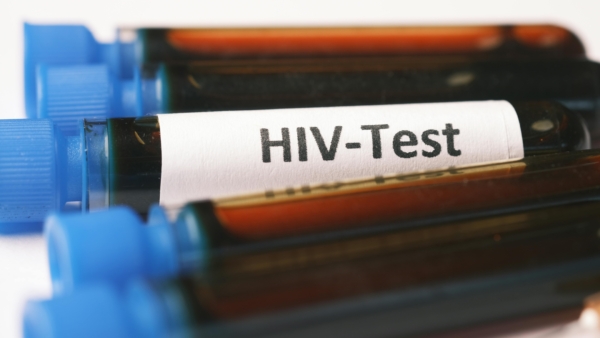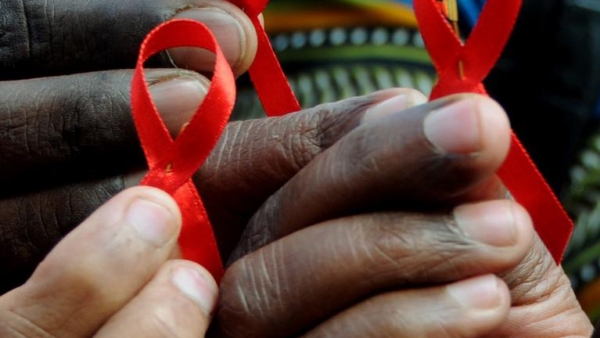
Lawyers urge second look at HIV non-disclosure cases, convictions following report
Monday, December 11, 2017 @ 9:25 AM | By Terry Davidson
Lawyers are urging Crown attorneys to re-examine HIV non-disclosure cases past and present following a federal report calling for a curbing of criminal prosecutions in light of evolving science around risk of transmission.
Various Canadian criminal lawyers are saying current cases and past convictions of non-disclosure should be revisited by provincial prosecutors and their attorneys general against the backdrop of the new report, which lays out various scenarios which would involve a low — or even non-existent — possibility of transmission, even if a condom is not used.
The Criminal Justice System’s Response to Non-Disclosure of HIV warns of the overcriminalization of infected people who don’t disclose their condition but are on treatment, have a low viral load and pose a “negligible” risk to a non-infected sex partner.
It goes on to classify HIV as “first and foremost a public health issue.”
After the report’s release, Ontario Attorney General Yasir Naqvi and Health Minister Eric Hoskins announced they would tell their Crowns to now limit non-disclosure prosecutions, particularly in cases where the infected person “is on antiretroviral therapy” and “where an individual has a supressed viral load for six months.”
Toronto criminal lawyer Michael Lacy, a partner with Brauti Thorning Zibarras and president of the Criminal Lawyers’ Association, said the report should give “guidance” to Crown prosecutors.
“From a legal perspective, the report provides guidance that should eliminate criminal prosecution in those cases,” said Lacy. “Non-disclosure alone will not vitiate consent. Non-criminal responses are being recommended for the vast majority of cases involving public health authorities. At the same time, the report recognizes that there will be some, now hopefully limited, circumstances where the blunt instrument of the criminal law will be the appropriate way to respond to deliberately high-risk behaviour.”
Current standards used to prosecute non-disclosure cases need to catch up with evolving science, the report states.
“Sexual activity, regardless of condom use, with an HIV positive person who is taking HIV treatment as prescribed and has maintained a suppressed viral load … poses a negligible risk of transmission,” it reads.
Still, it stresses “criminal law applies to HIV-positive persons where they fail to disclose, or misrepresent, their HIV status prior to sexual activity that poses a realistic possibility of transmission.”
Criminal law, it states, should not apply to non-disclosing infected people as long as they’ve maintained a suppressed viral load of under 200 copies per millilitre of blood, and that “a person living with HIV who takes their treatment as prescribed is acting responsibly.”
Also, the law should not apply to those who are not on treatment but use condoms or to those who engage only in oral sex, “because the realistic possibility of transmission test is likely not met in these circumstances.”
Instances where risk increases, it states, includes “multiple acts of sexual intercourse,” particularly when condoms are not used, and oral sex involving ejaculation with an untreated infected partner.
It also states that “persons from marginalized backgrounds,” such as gay, Indigenous and black people, are disproportionately impacted.
Released Dec. 1, the federal paper could potentially trigger a new legal chapter in this issue.
In 2012, the Supreme Court ruled in R. v. Mabior [2012] SCC 47 that an infected person was not legally required to disclose their HIV-positive status to a sex partner if the former carried a low viral load and used a condom. But the SCC also left room for tweaking should laws need to adapt with scientific findings and shifting risk factors.
This report instructs all Crown attorneys that they need to examine the science underlying their individual prosecutions and decide whether or not it is still in the public interest to prosecute the cases, and whether or not there is still a reasonable prospect of conviction,” said Toronto lawyer Daniel Brown, head of Daniel Brown Law and author of Prosecuting and Defending Sexual Assault Offence Cases: A Practitioner’s Handbook. “Because the science has evolved so quickly and so much … our perceptions of what created a realistic possibility of transmission, even five years ago, has changed to where we’re at today, and we have to re-examine all of the cases in the court system to determine whether or not they still meet that standard.”
Provincial attorneys general should turn their eyes toward past convictions, he said.
“We can see that there was a substantial amount — not just those who were convicted after a trial — but many people who pled guilty perhaps to minimize the type of punishment that could come to them had they proceeded to a trial … and it is uncertain whether or not they pled guilty in the face of evidence that would no longer withstand scrutiny,” said Brown. “Were these cases where there was a realistic possibility of transmission, or were these cases where the law hadn’t caught up with the science?”
Alberta criminal lawyer Markham Silver also talked about revisiting non-disclosure convictions, using as an example the launching of a coroner’s inquiry into years of botched examinations by disgraced child pathologist Charles Smith.
“Realistically, the attorney general or the ministry of justice of any province can engage in reviews as they see fit,” said Silver. “When they had the situation … in Ontario with Smith … the Crown reviewed a whole rack of cases that dealt with his evidence and made determinations based on new information they had obviously received. … So it’s certainly open to the Crown to do as the Crown sees fit … in any particular provinces.”
Vancouver lawyer Troy Anderson, who recently acted in a non-disclosure case, agrees.
“If you’re looking at the science that says it is essentially no risk of HIV transmission if you are being treated and acting responsibly, then yes, I agree with that absolutely,” he said. “The prosecution services vary from province to province … [but] I think it is absolutely going to follow. I think there is will be a drop in the number of people being prosecuted for this.”









